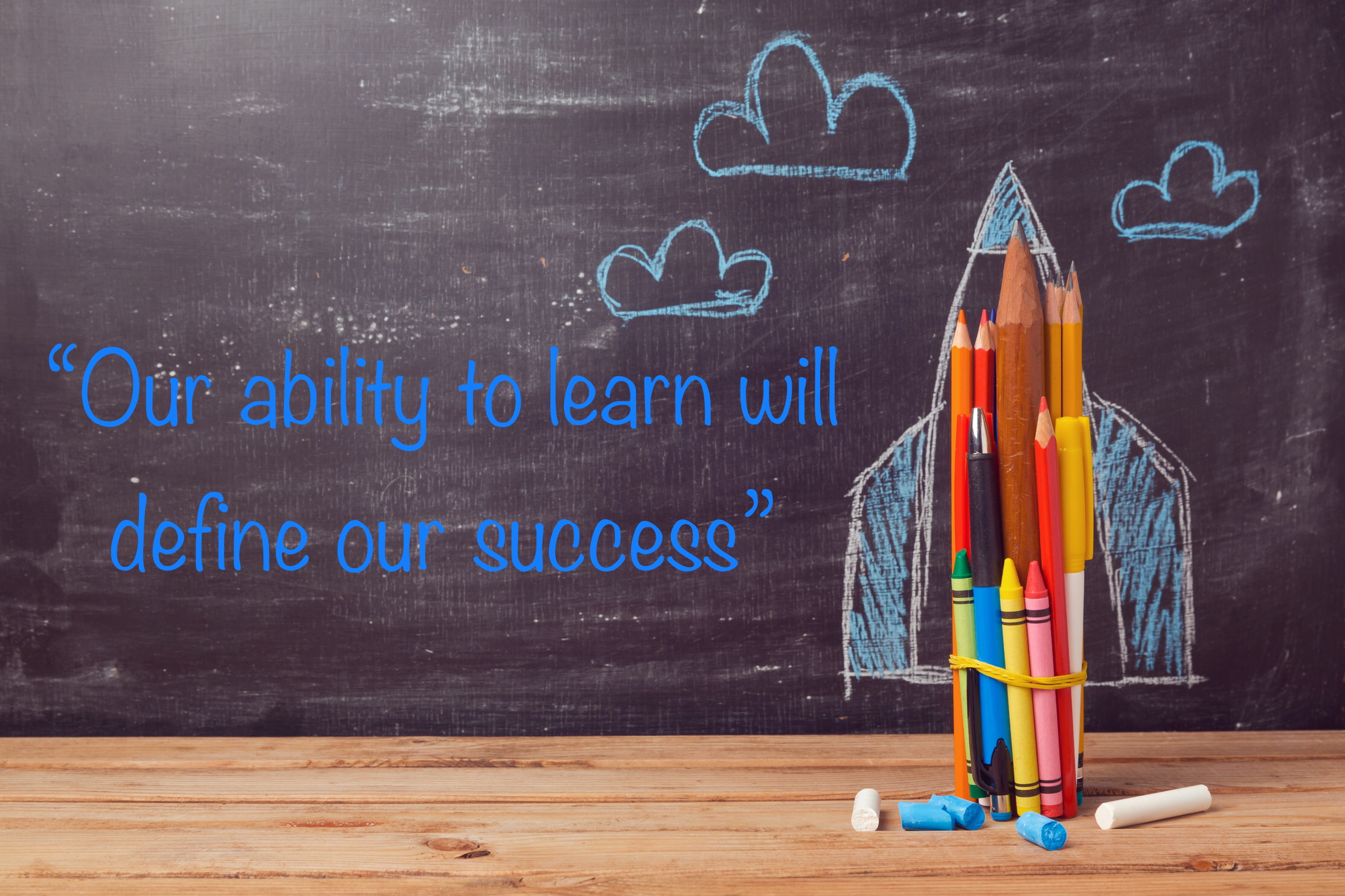Our ability to learn will define our success
I have looked back at my perspective on learning as a 30-year-old. At that point I believed that the completion of my professional qualifications would be the end of formal learning for me – no more exams or assessments. This was the view of the world I had been sold, learning was a phase, a life-stage, and now that was done it was time to work! What I lacked at that time was a perspective of how the world would change, and also the fact that learning could be fun and fulfilling.
For all of my clients, from large corporates to individuals, being open to learning has never been more critical. The pace of change is not going to slow and will be increasingly difficult to predict. If we overlay the concepts of the multi-staged life which arises from people living, and therefore working, longer this learning will need to take many forms throughout our lives – a one-off early education won’t be enough to get people through a longer life and lengthened career. Lynda Gratton and Andrew Scott, in their book “The 100-year Life”, predict that 95% of children today will live to over 100. Those with the ability to embrace life-long learning will have fulfilling, multi-staged lives. Those without these resources could face working for 50-60 years in low paid, unskilled roles.
A one-off, early education won’t be enough to get people through a longer life and lengthened career
This is about an attitude that goes beyond the pursuit of formal qualifications. The work of The Hot Spots Movement, describes some of the opportunities that being open to lifelong learning can bring. These include broadening horizons, crafting a diverse skillset, building the confidence to step up to new challenges, as well as increased ambition and finding new meanings in work.
Does lifelong learning feel like an opportunity to everyone? In reality, staying where we are, rejecting the chance to learn, isn’t in my view a realistic option. Technology alone will continue to develop at a pace that will make that an impossible choice. People of all ages, and stages, will need to engage in work that has development opportunities built into it, be prepared to spend some of their leisure time upskilling, and probably take time out of work to learn a new skill.
Those who have the resources, desire, and ability, to take the opportunities that lifelong learning brings are likely to enjoy a range of careers, interspersed with new learning. However, those without these resources could face 50-60 years in low paid, unskilled roles. In his latest TEDx talk, “Why our jobs matter now more than ever before”, Kevin Green explores what the shifting worlds of learning and work mean across the economic and social spectrum, and the resultant polarisation of roles which we face.
Organisations with the resources, and foresight, are starting to look at how they can navigate these shifts, enabling them to secure talented employees into the future. It is clear that we need to think very differently about education and learning, particularly for the generation leaving school and embarking upon their first jobs or selecting university courses.
School leavers today will have very different work lives compared to the generations that have gone before. Learning needs to be a concept woven throughout their lives, in many different ways, if they are to thrive and remain fulfilled
Learning takes many forms, from the formal education provided by colleges, universities and professional development programmes; through apprenticeships and learning on-the-job; to an open curiosity to learn from experiences every day. My role as a coach is to facilitate a conversation which uncovers learning and leads to action – tapping into the client’s core values and creating a path for ongoing learning and fulfilment.
As the world changes faster and more unpredictability, how are you preparing yourself, your employees, or those whose learning you support for a longer, fulfilled life – with learning at its core?
If you are struggling to focus your learning, or turn what you learn into action, and want to find out more about how coaching can help you , please get in touch and arrange a free introductory coaching session.
